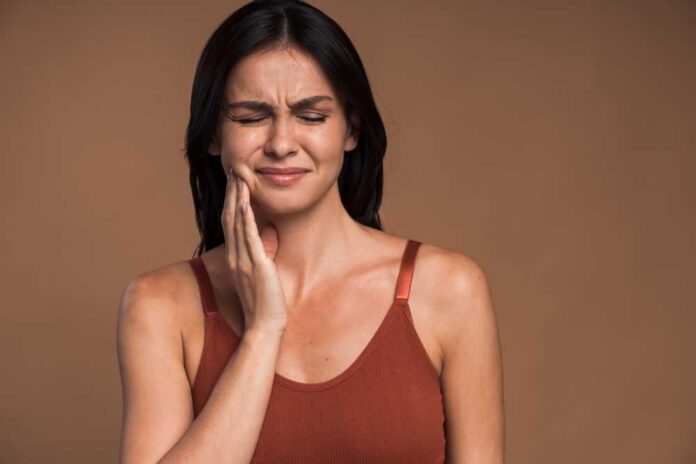
Do you ever wake up with a pain in your jaw?
If so, it may be because you are clenching or grinding your teeth at night.
This is a condition called bruxism, and it’s usually the most likely cause of morning jaw pain. You may need to use a bite guard to reduce clenching and protect your teeth.
But that’s not the only reason your jaw might hurt when you wake up in the morning.
Here are four other possible causes of morning jaw pain:
Cavities, Infections, and Gum Disease
If you have a problem with your teeth or gums, it could be causing your jaw pain.
Cavities, infections and gum disease can all cause inflammation and pain in your jawbone, especially if they persist without treatment.
See your dentist to get any dental issues treated as soon as possible. Decay and bacterial infections can quickly spread and cause serious and potentially life-threatening consequences.
TMJ
Temporomandibular joint (TMJ) disorder is a condition that affects the joint that connects your jaw to your skull.
If you have TMJ, you may experience pain in your jaw, face, and neck, as well as clicking and popping, sounds when you open and close your mouth.
Treatment for TMJ may include pain medications, hot or cold therapies, and possible corrective surgery.
Nasal Congestion
Some of your sinuses are located near the upper part of your jaw.
If you are congested with seasonal allergies or have an infection in your sinuses, it can put pressure on your jaw area and cause pain.
Treatment for sinus congestion may include antihistamines, decongestants, and nasal sprays.
If you have an infection, you may also need antibiotics.
Wisdom Teeth
Wisdom teeth are the third set of back molars to come in, usually during your late teens or early twenties.
Many people do not have enough space in their mouths for wisdom teeth, so they become impacted—stuck beneath the gum line. They might also come in crooked or misaligned.
This can pressure your gums and other teeth, causing uncomfortable jaw pain. You may need surgery to have these teeth removed.
When to See a Doctor
A doctor should check out any aches and pains that are debilitating or last for more than a few days.
If you have morning jaw pain accompanied by other symptoms like fever, shortness of breath, or chest pain, see a doctor immediately, as these could be signs of a more serious infection or condition.
A doctor or dentist should also evaluate jaw pain that is severe or gets worse over time.
They can help you determine the cause of your pain and devise a treatment plan to relieve it.






















